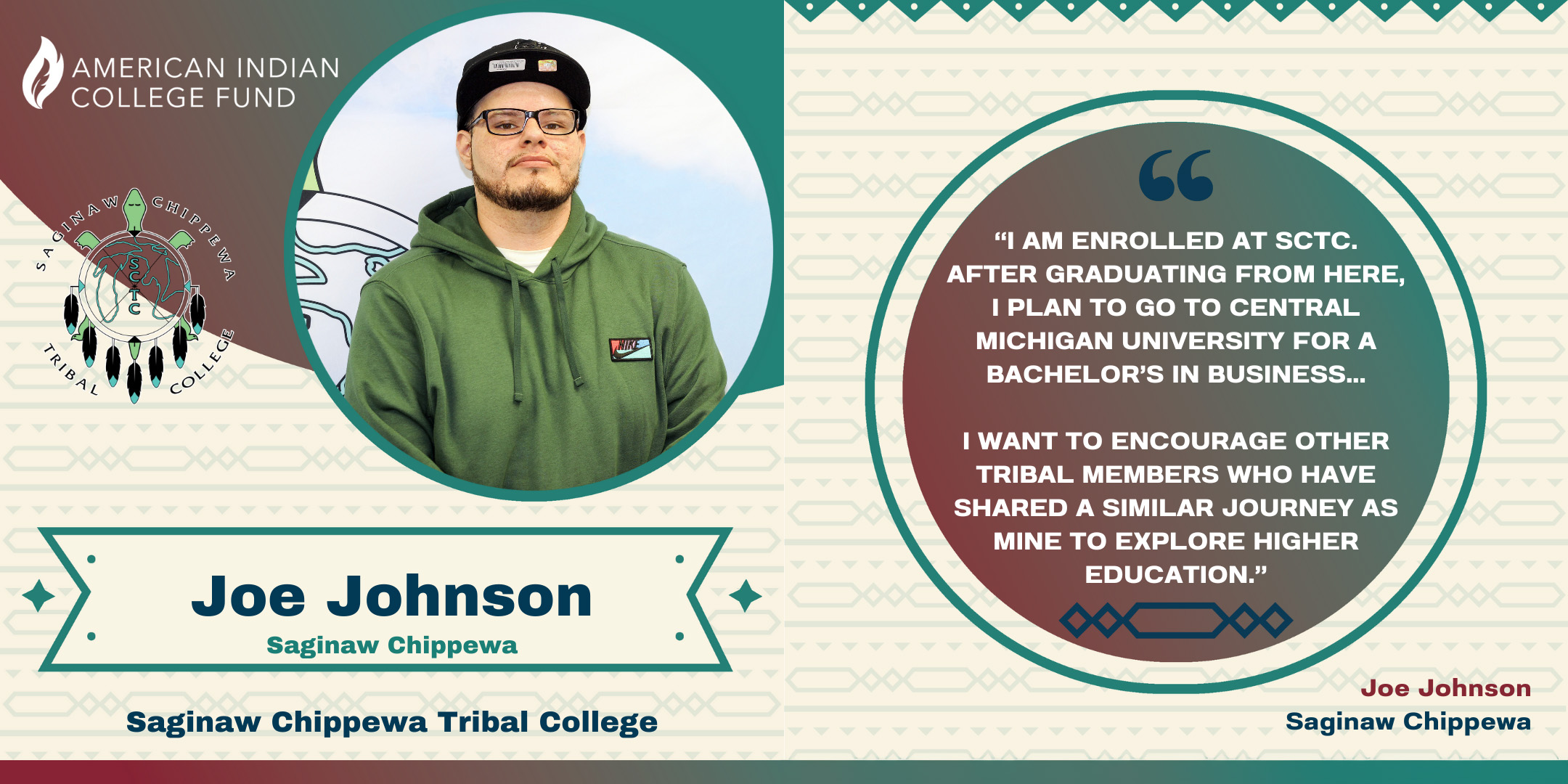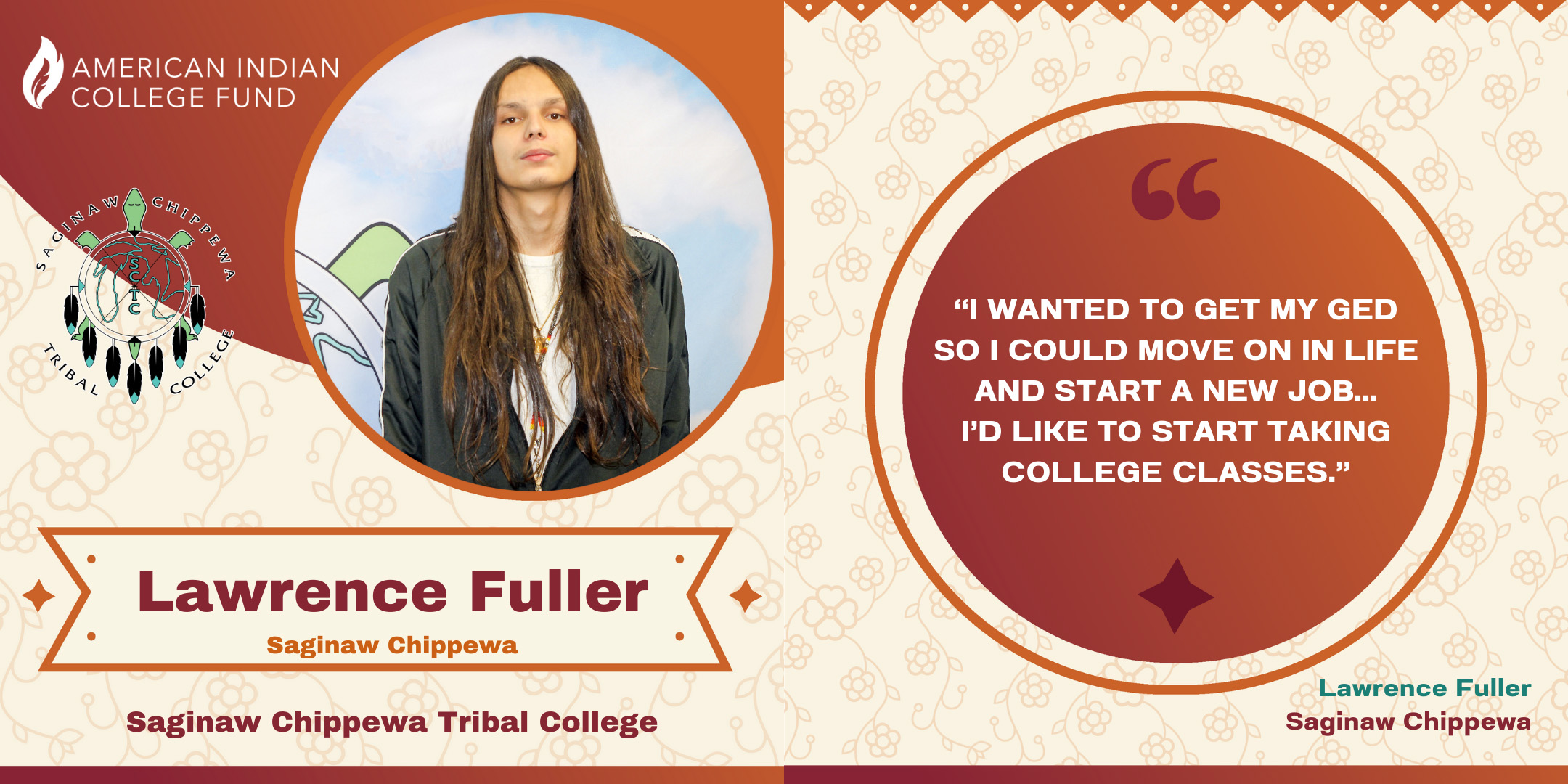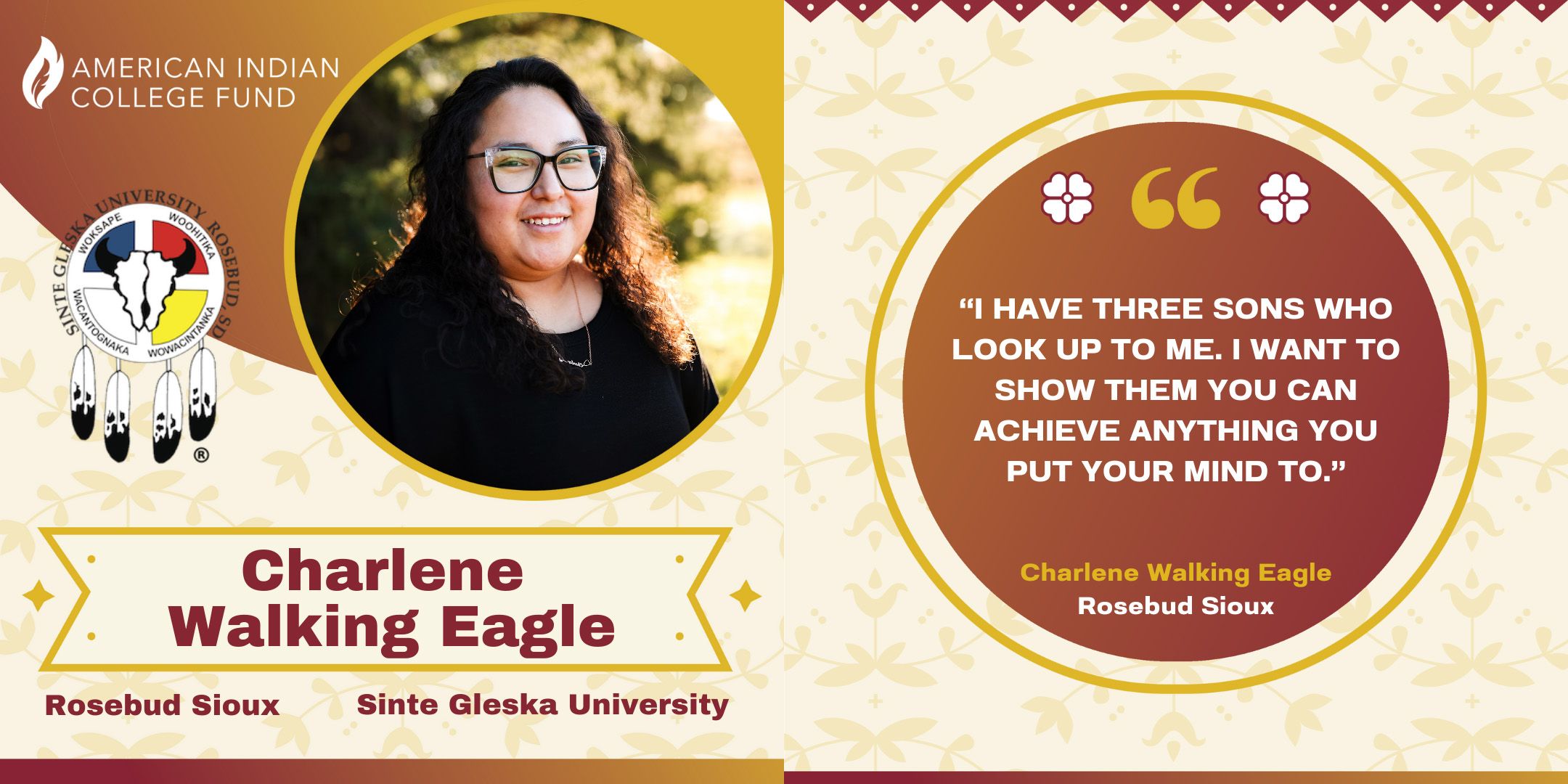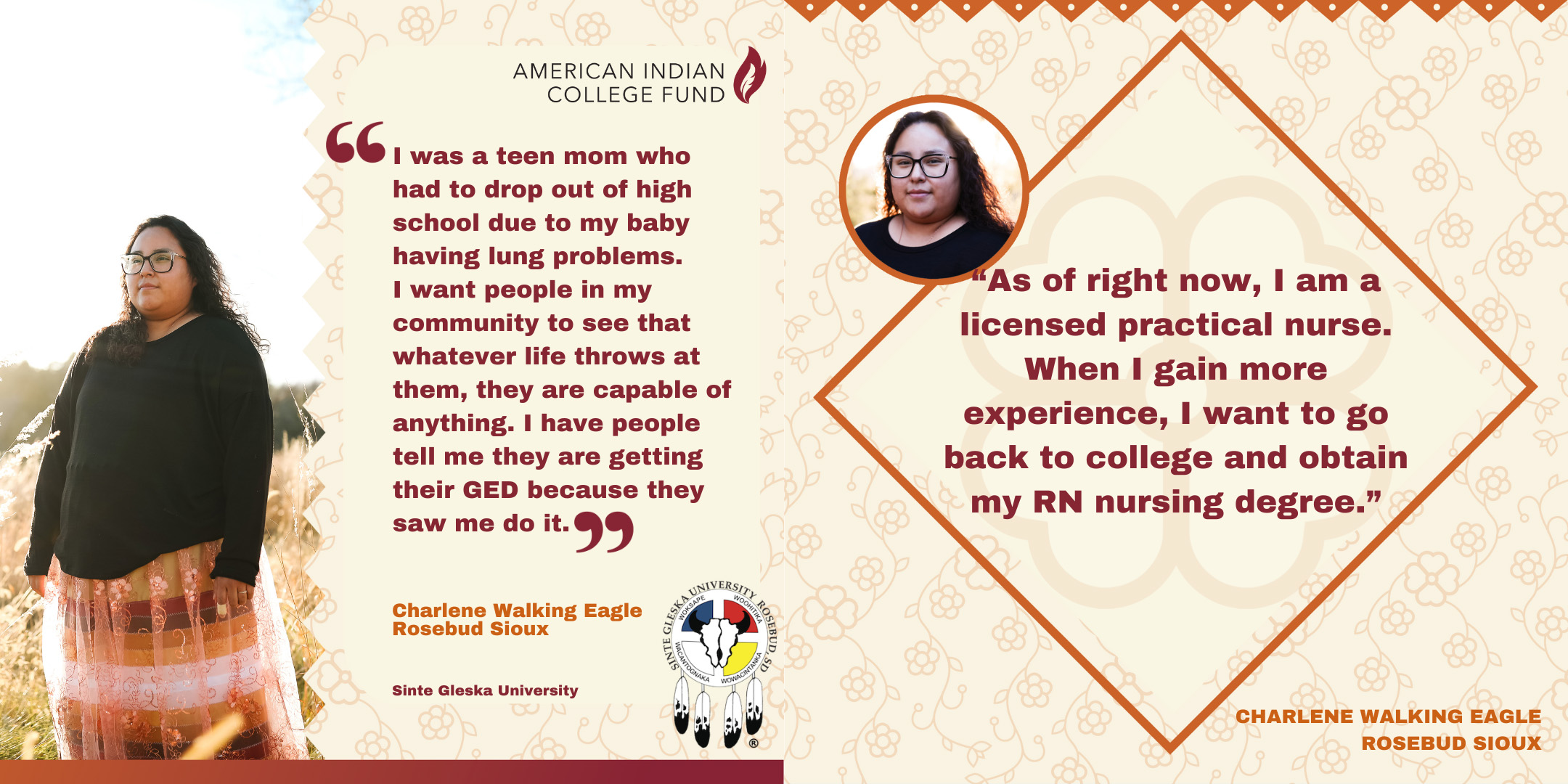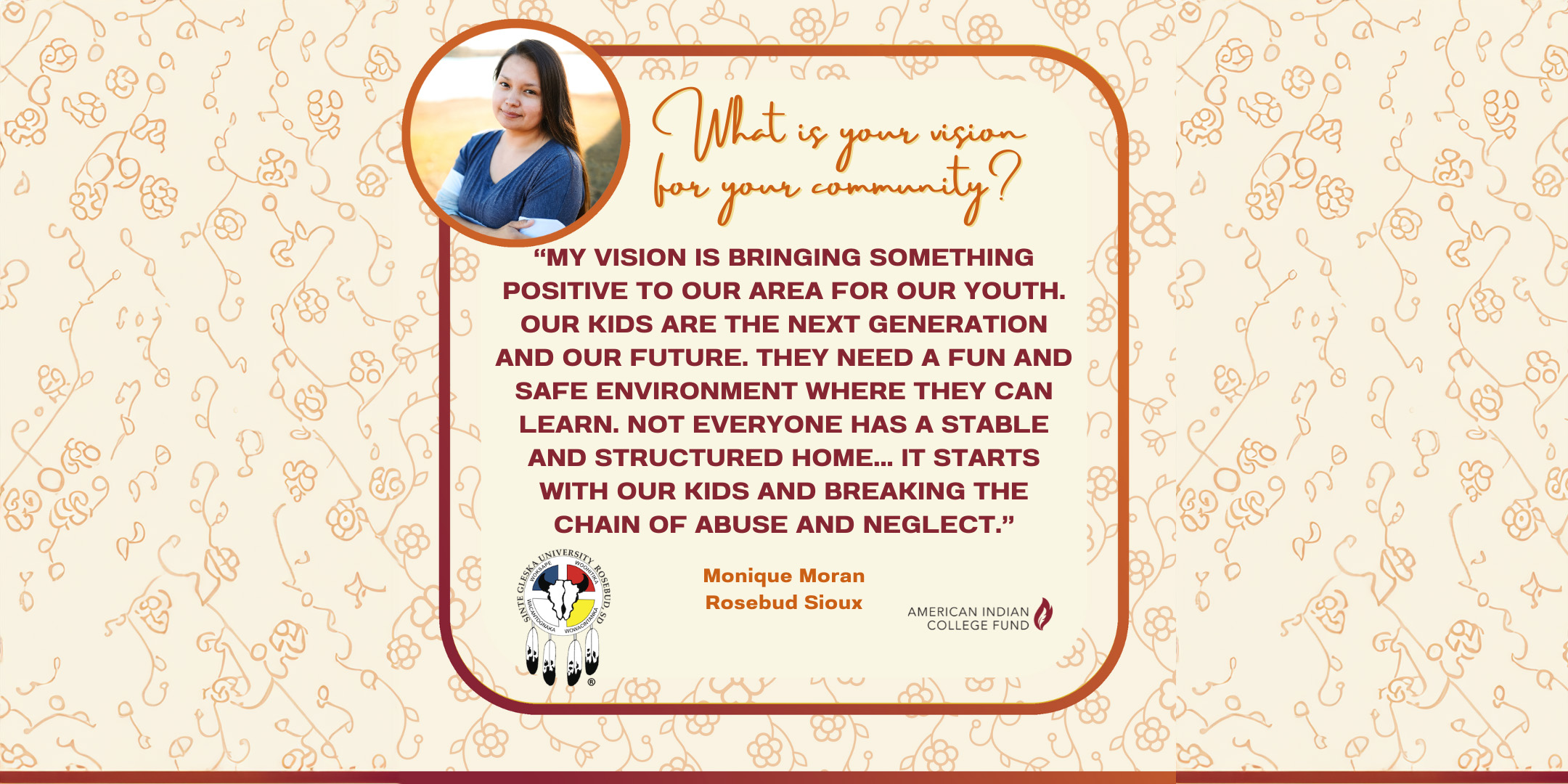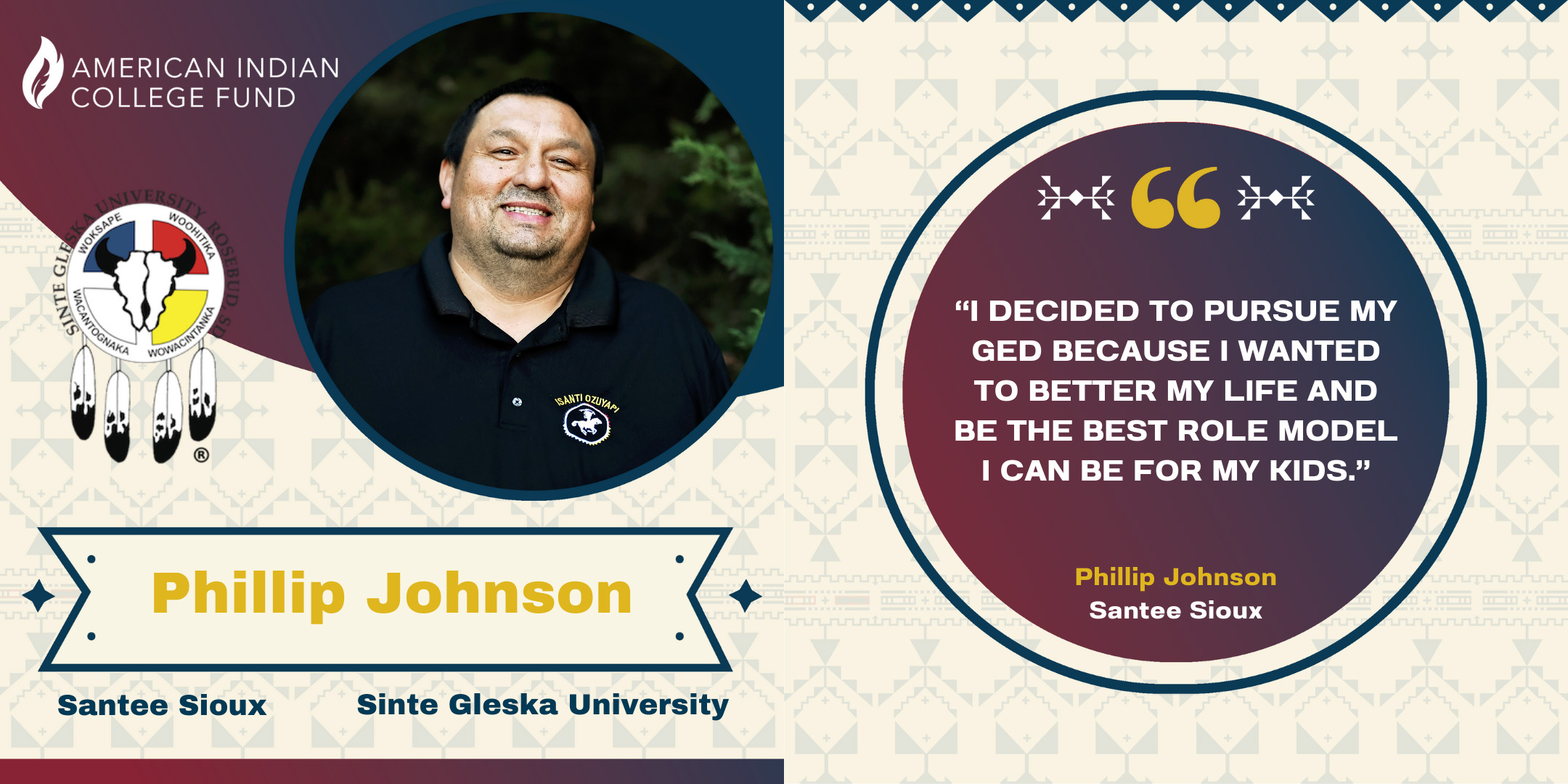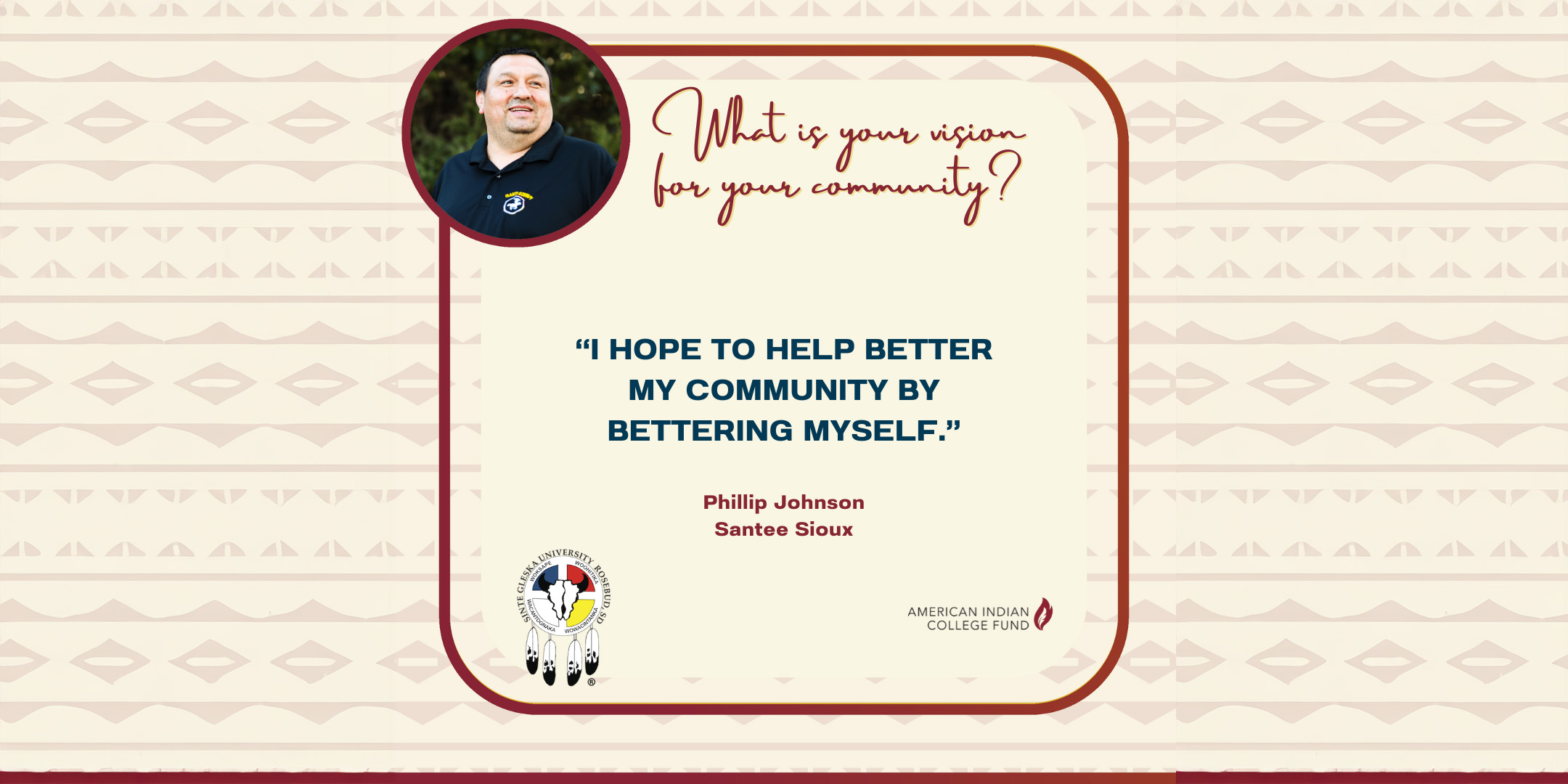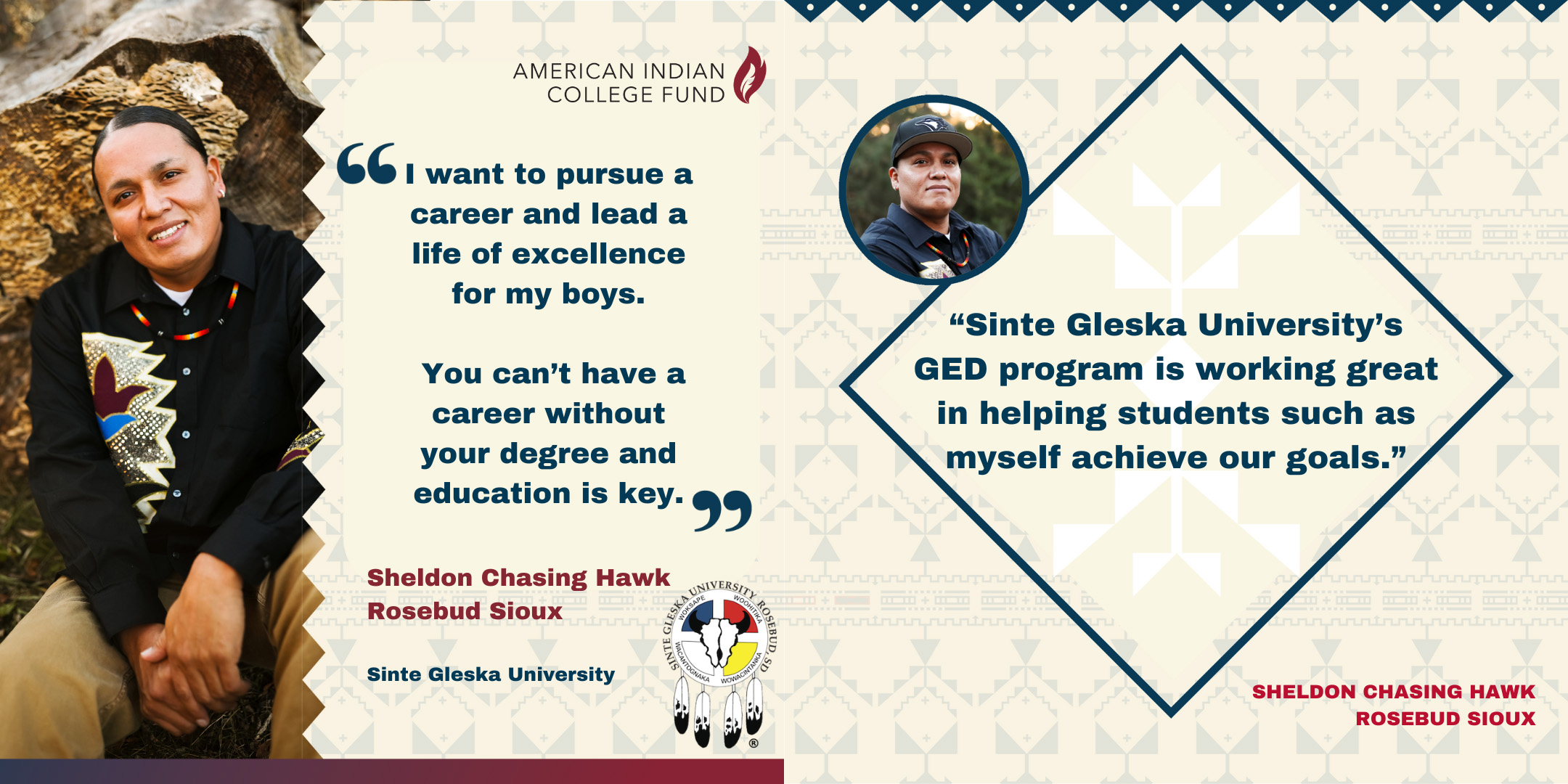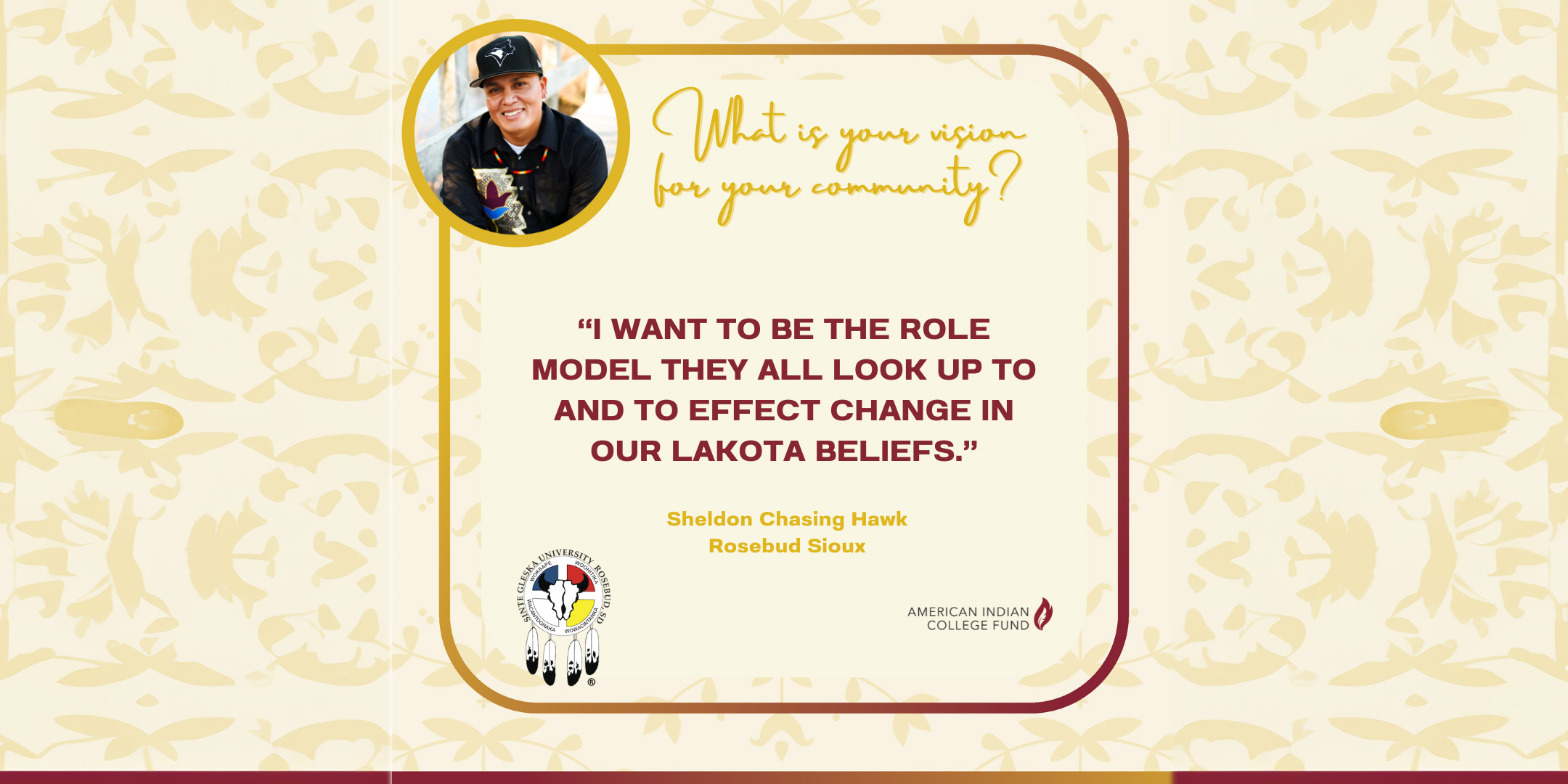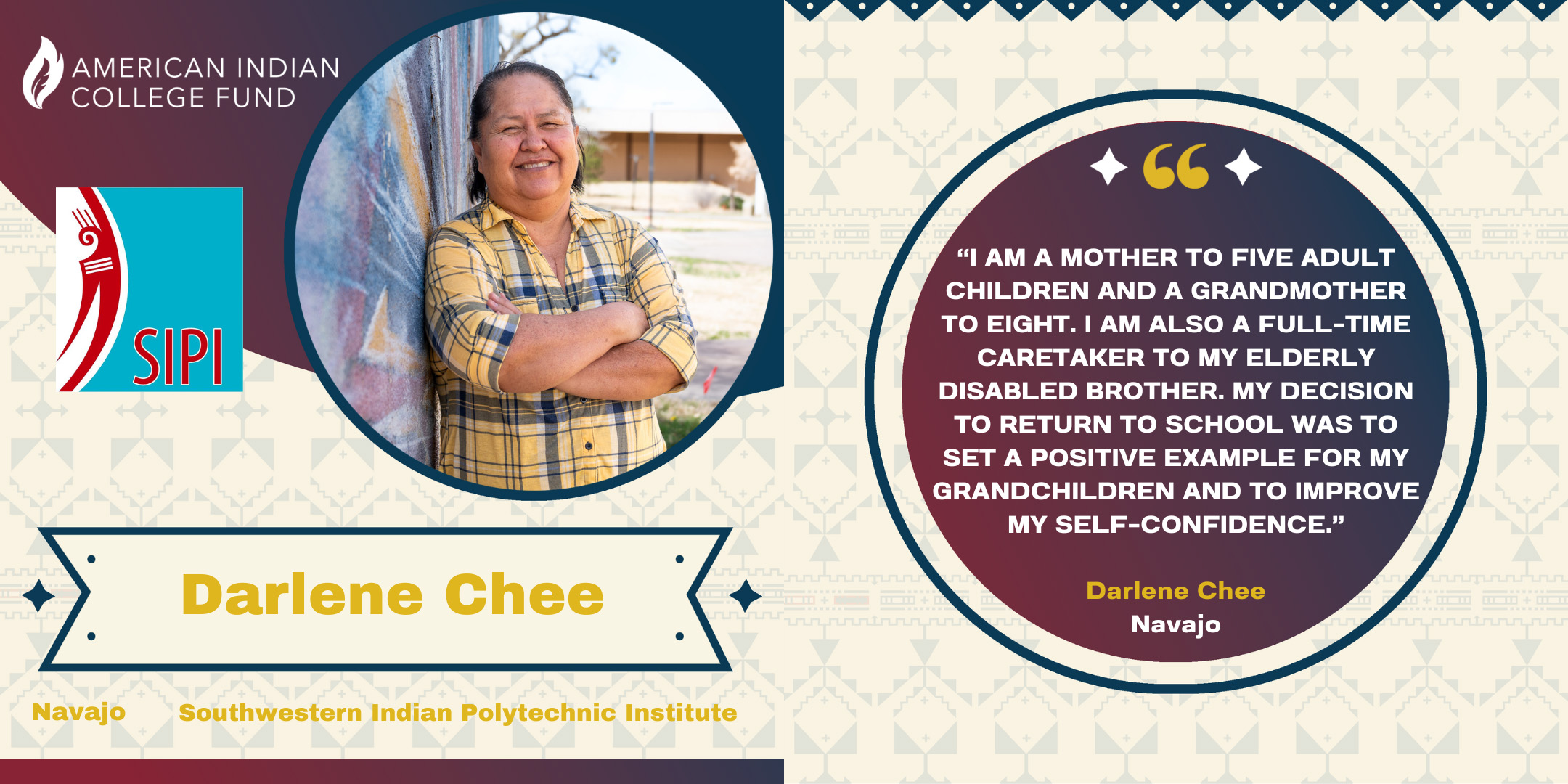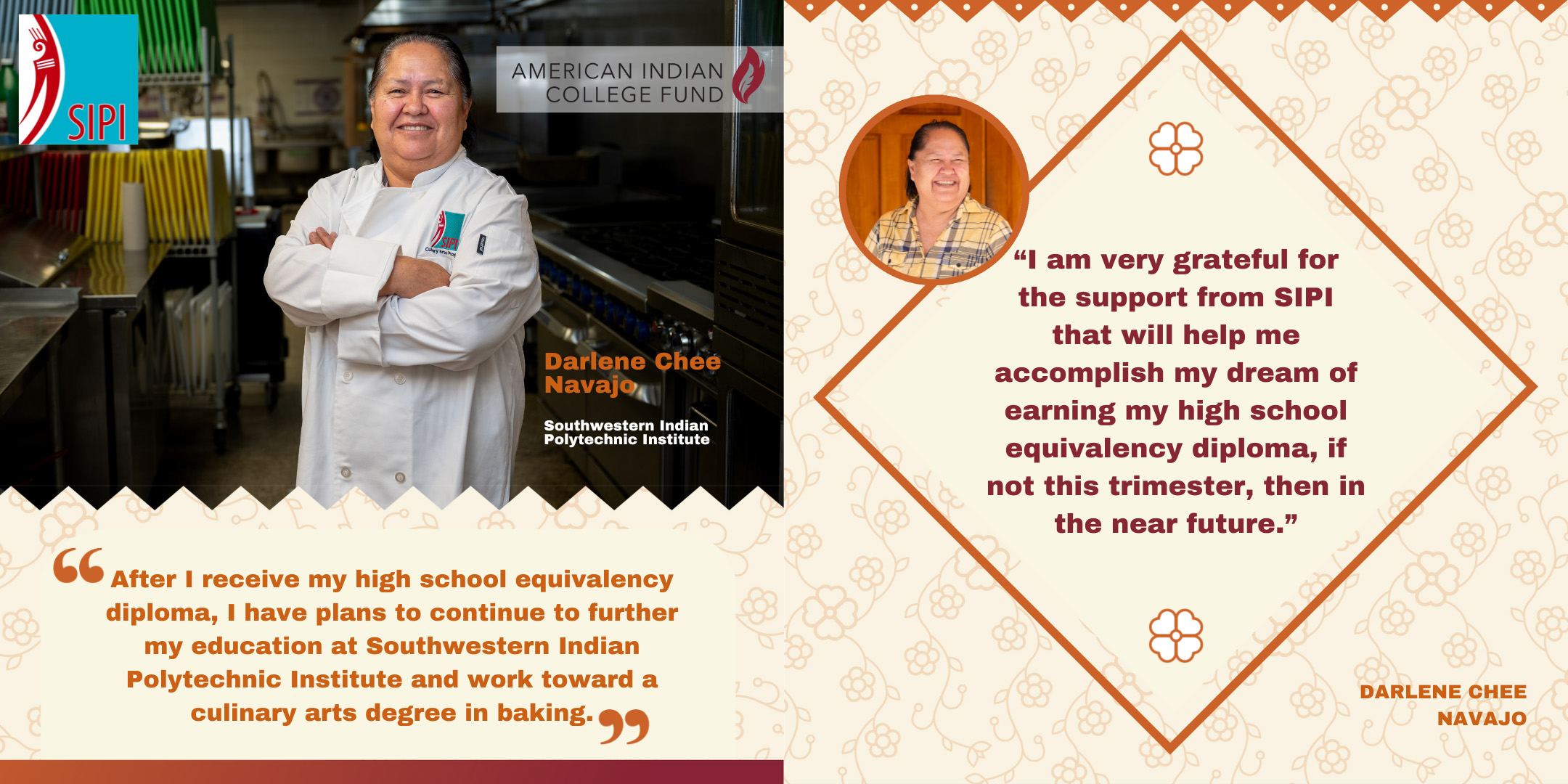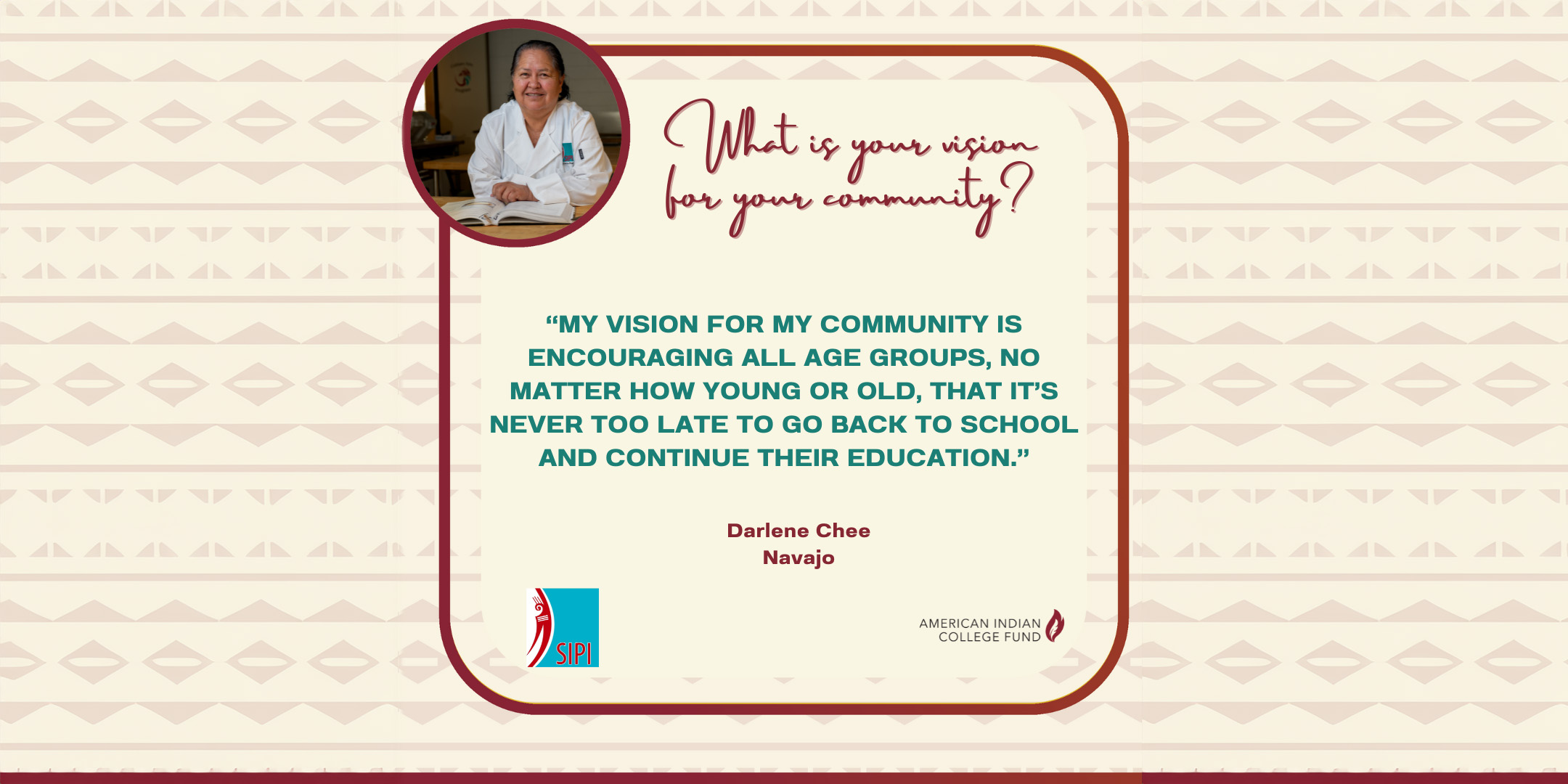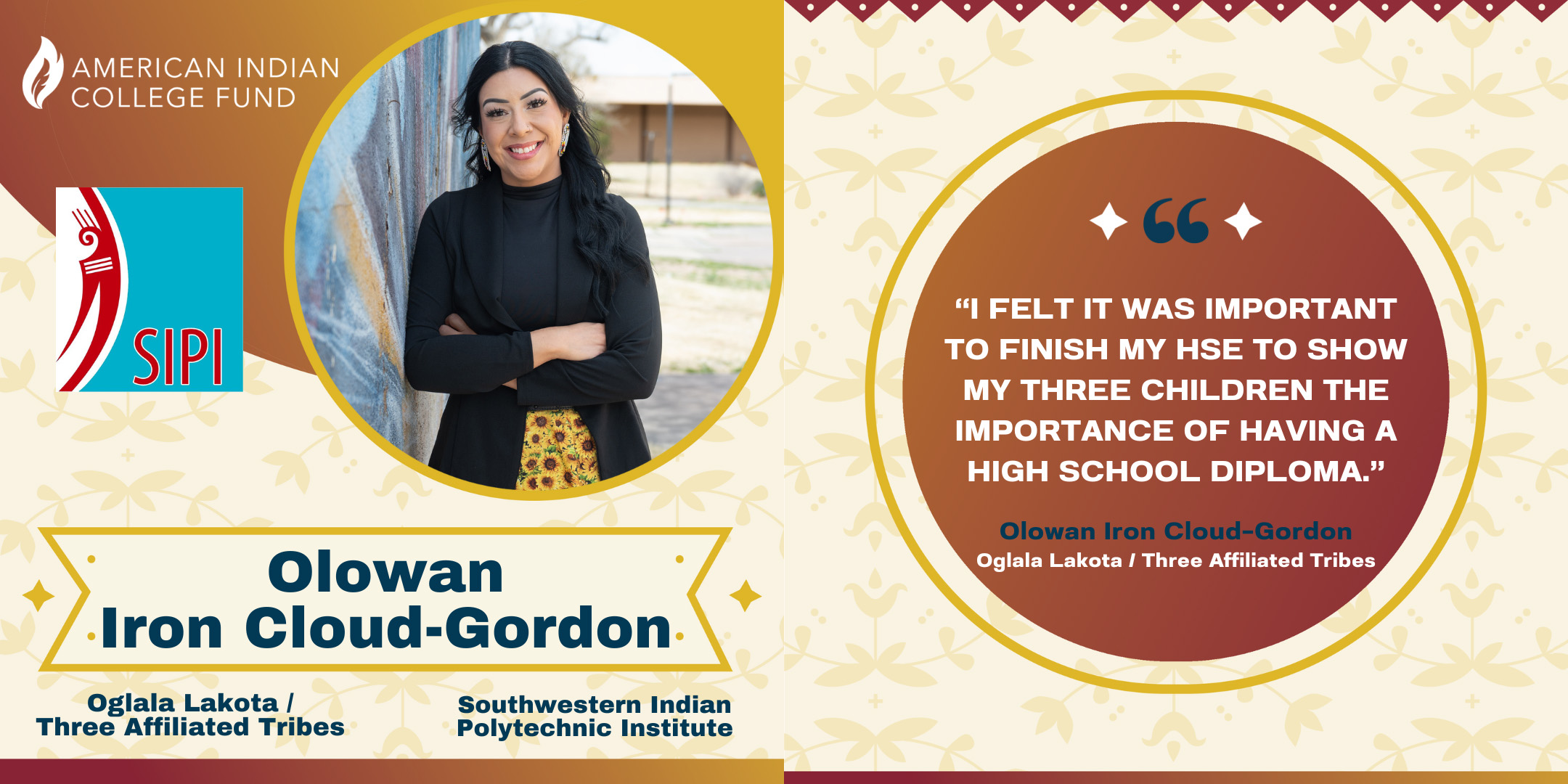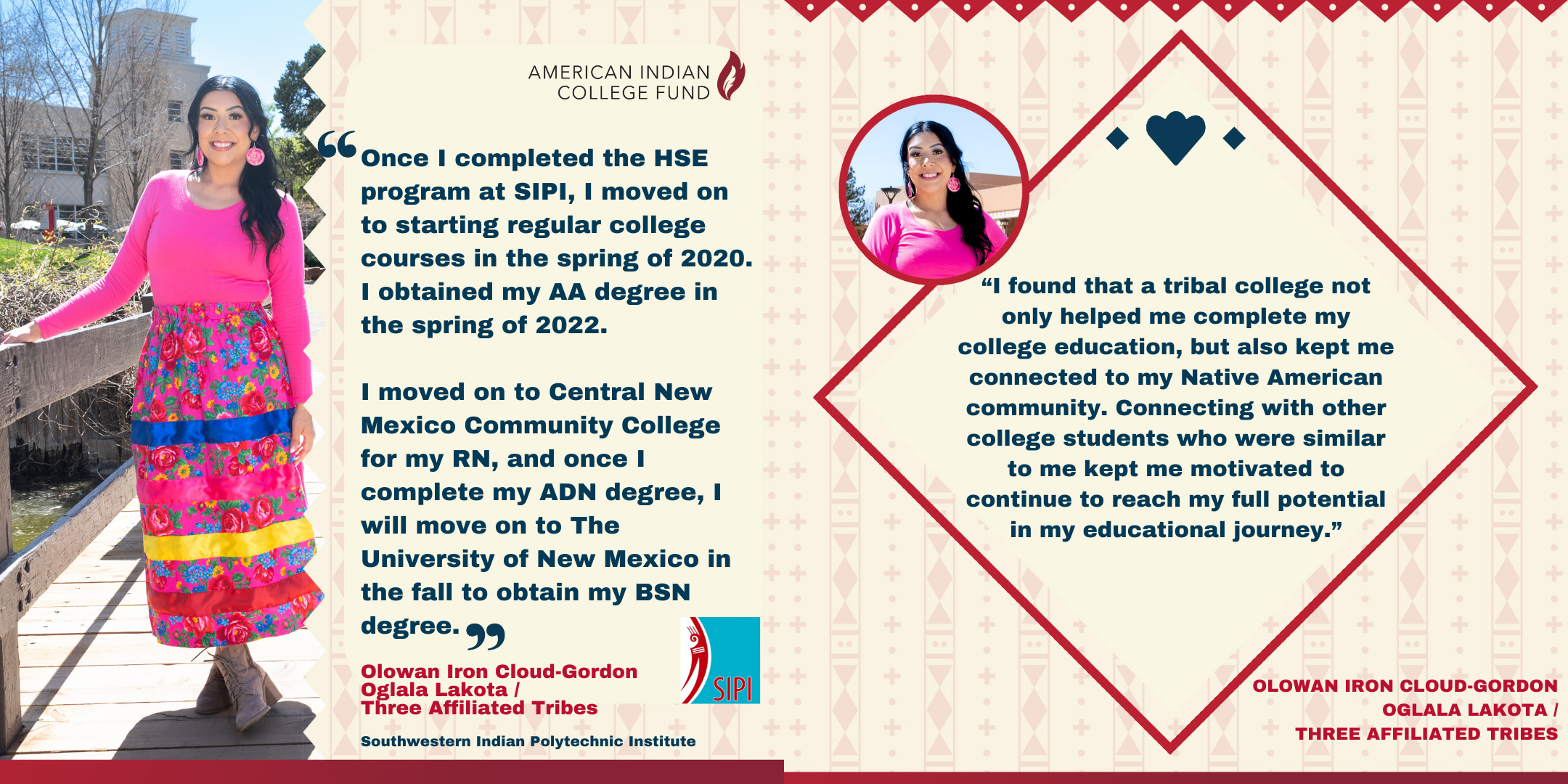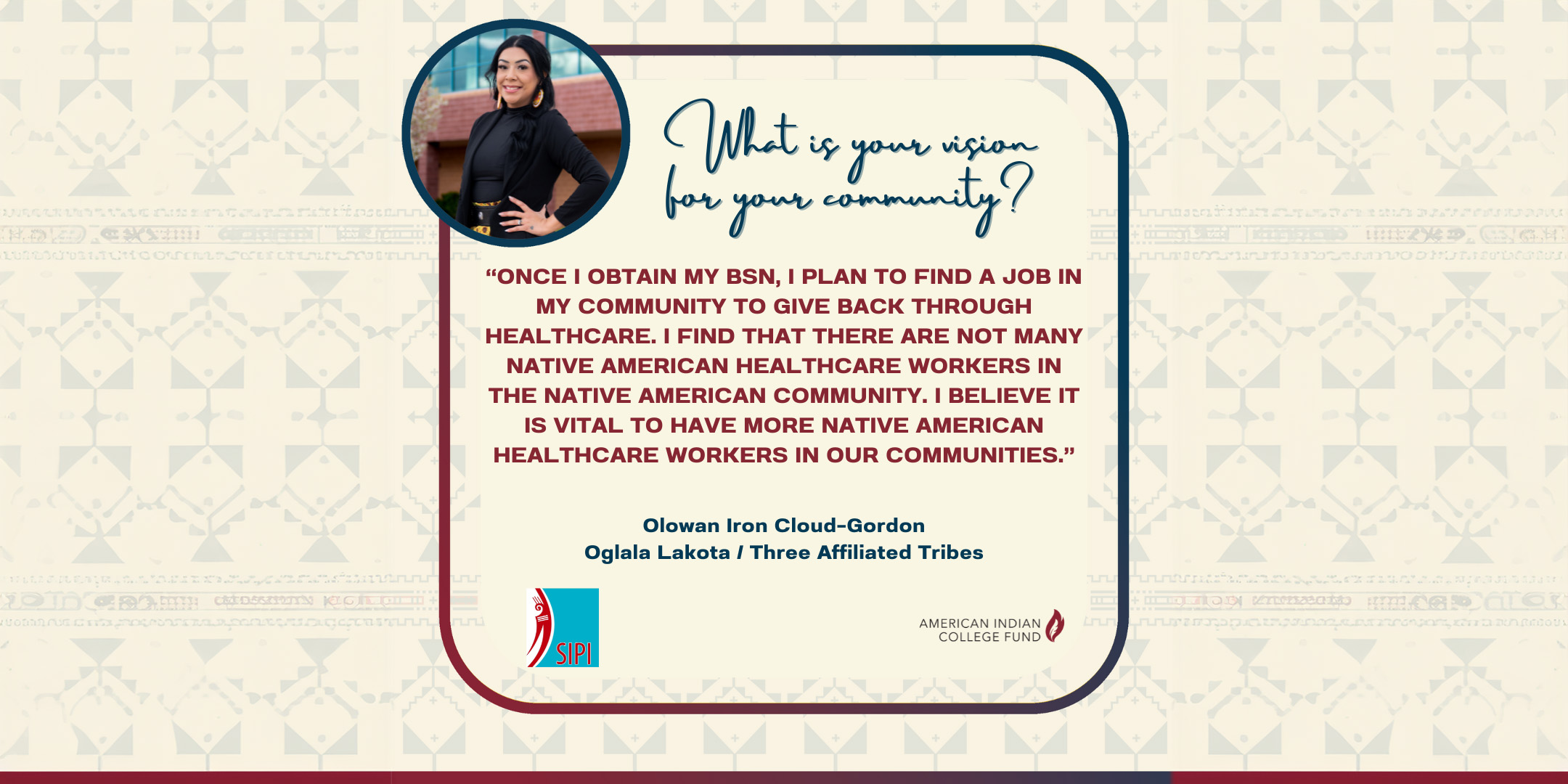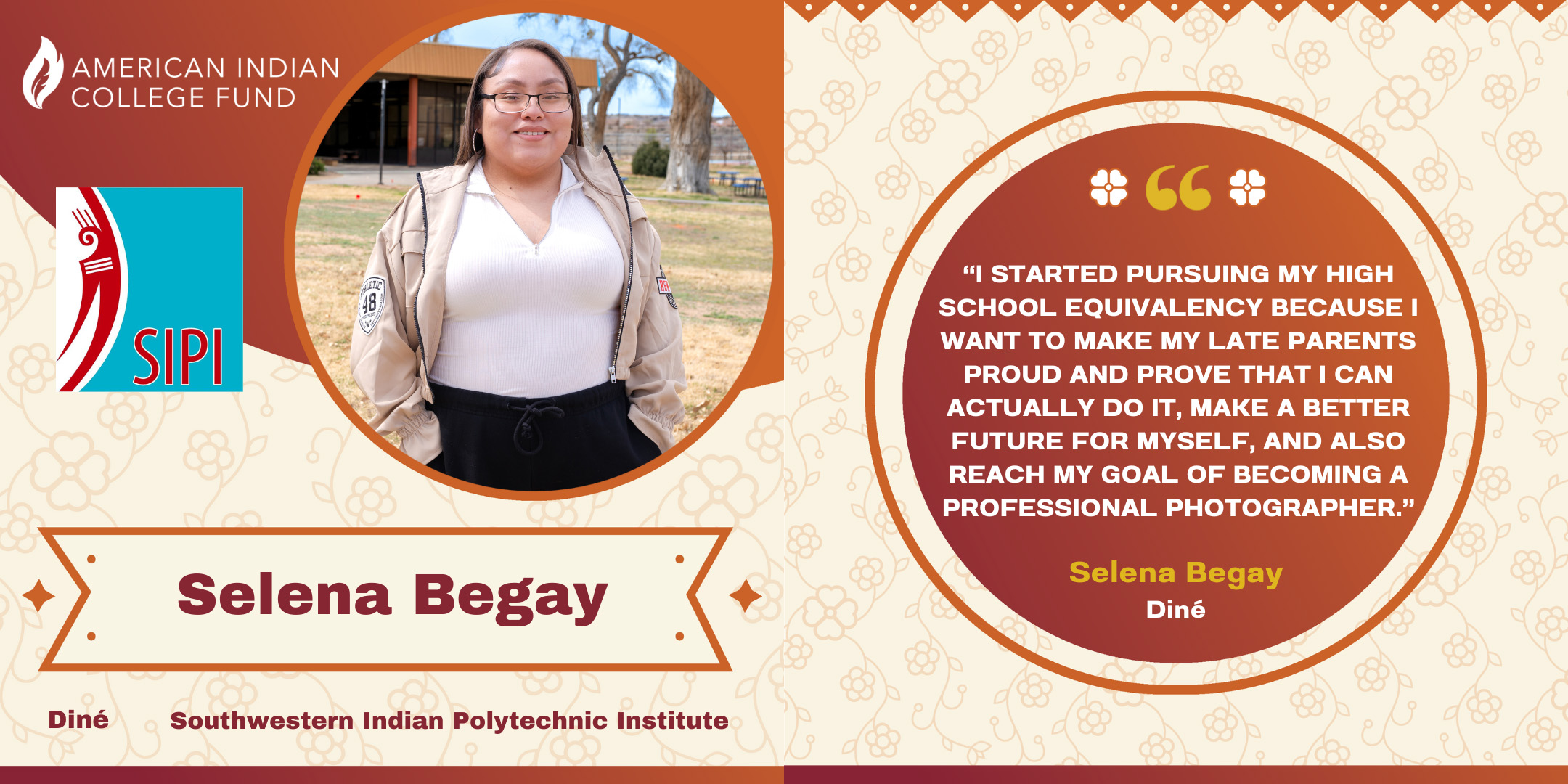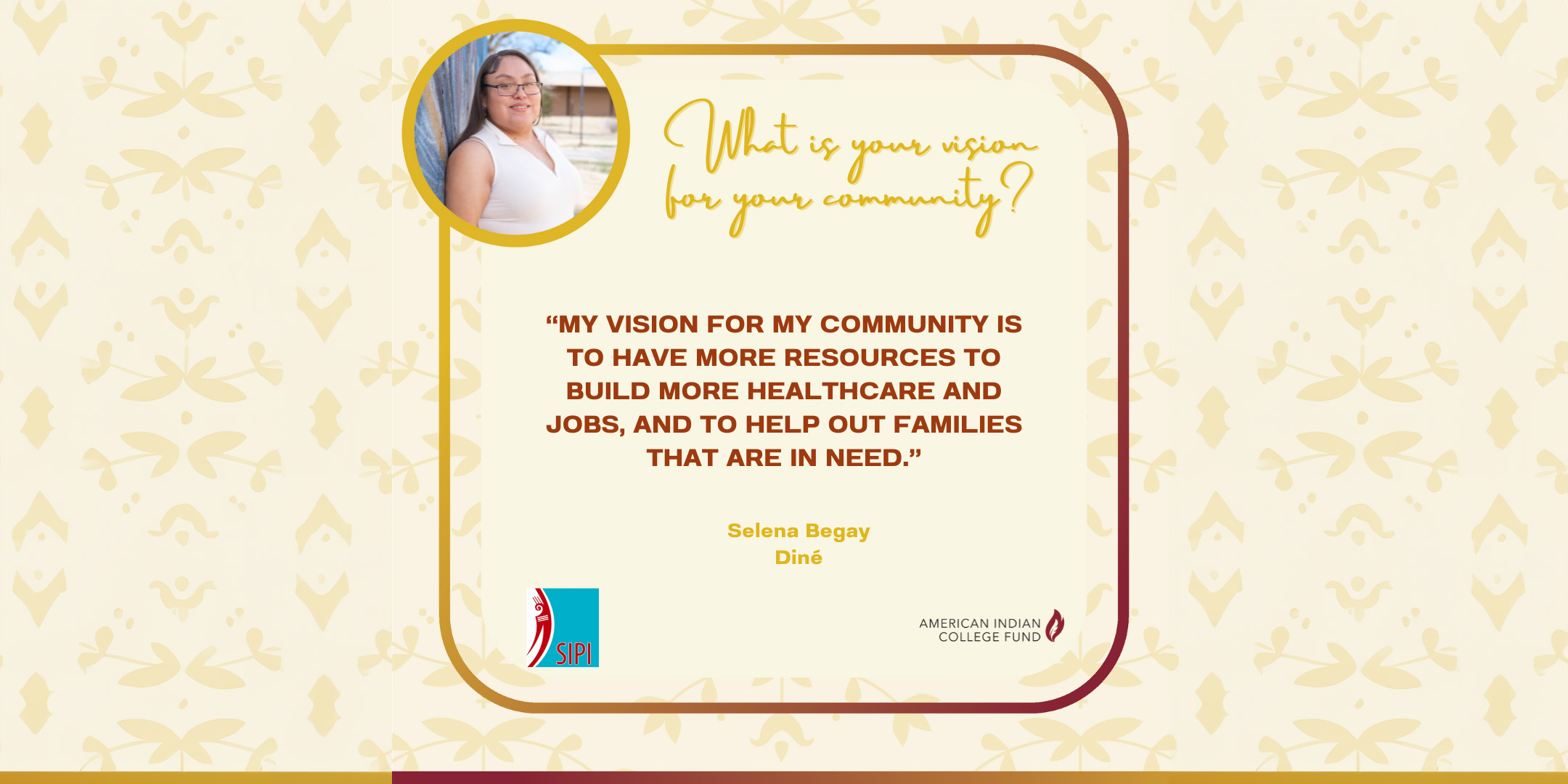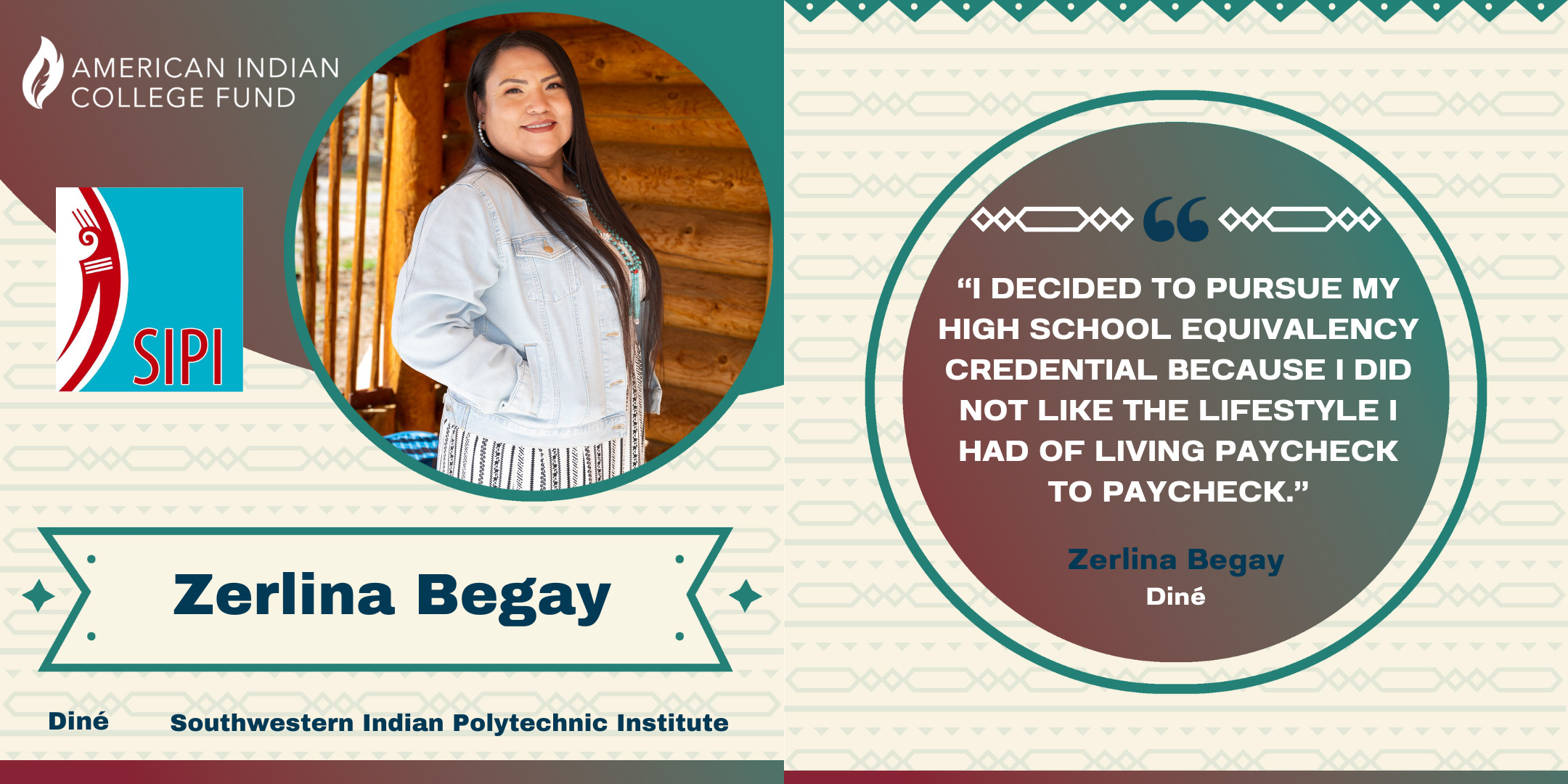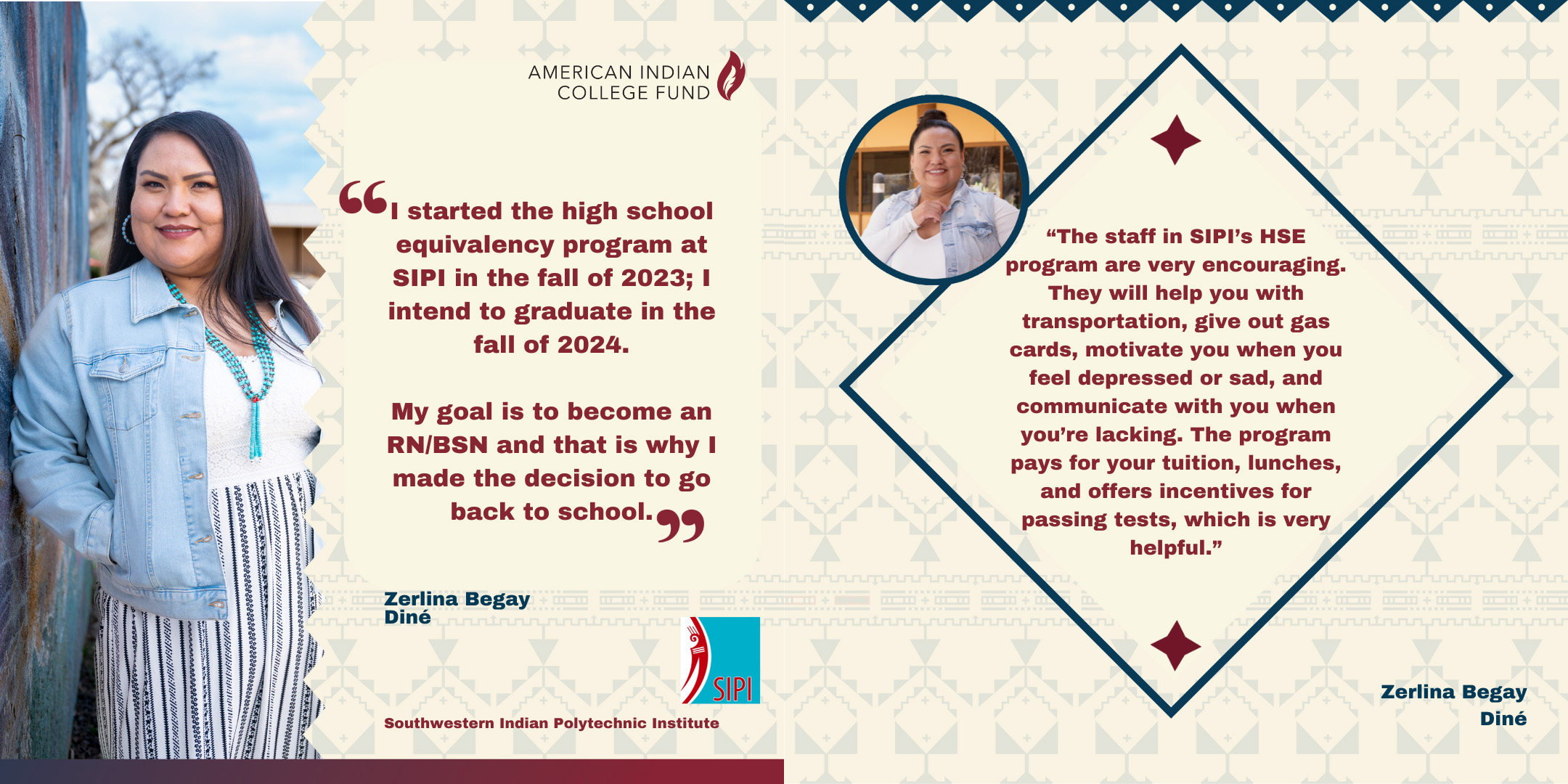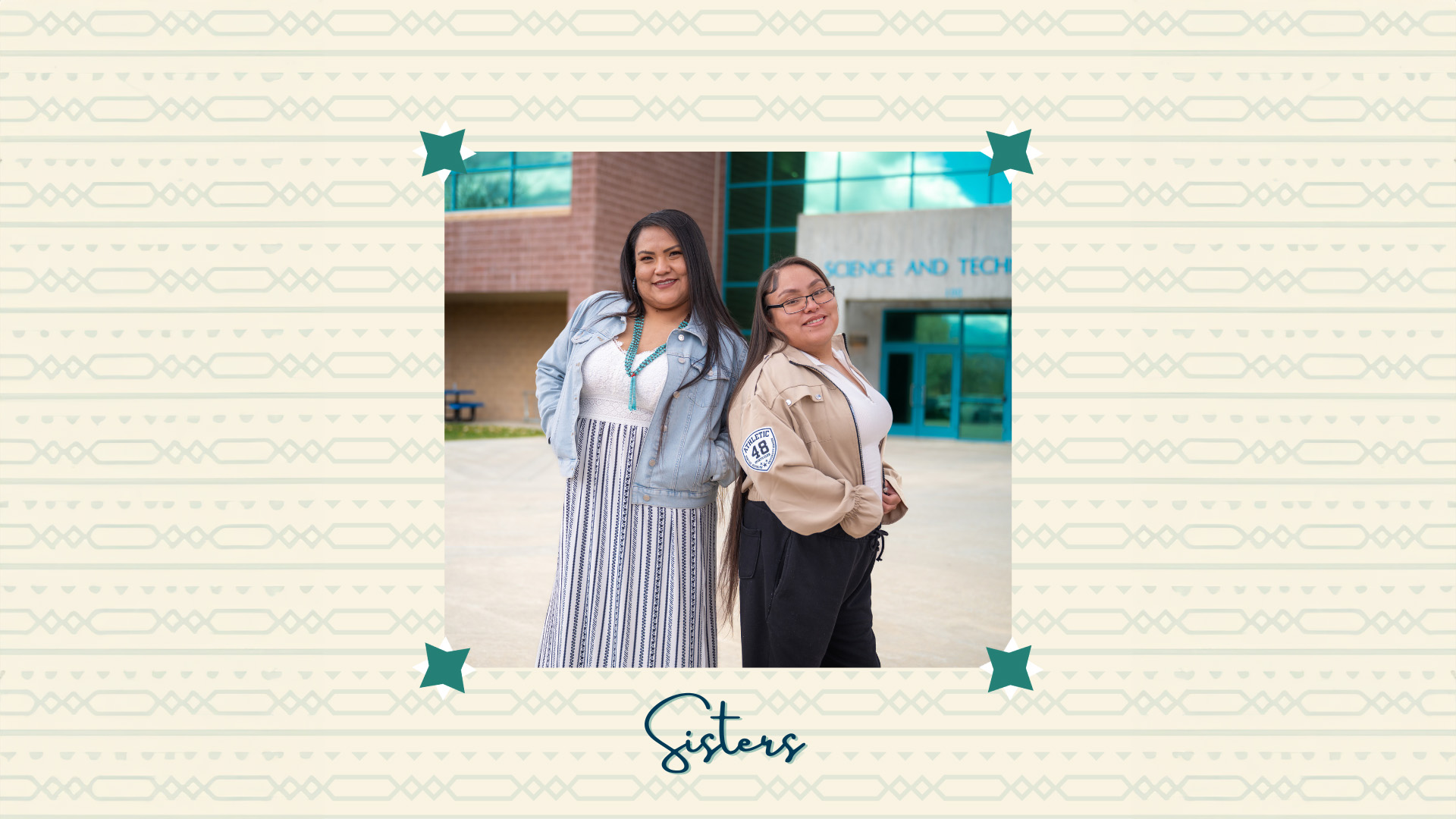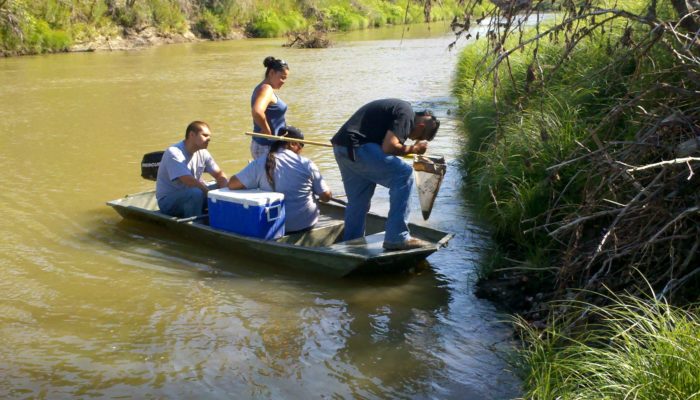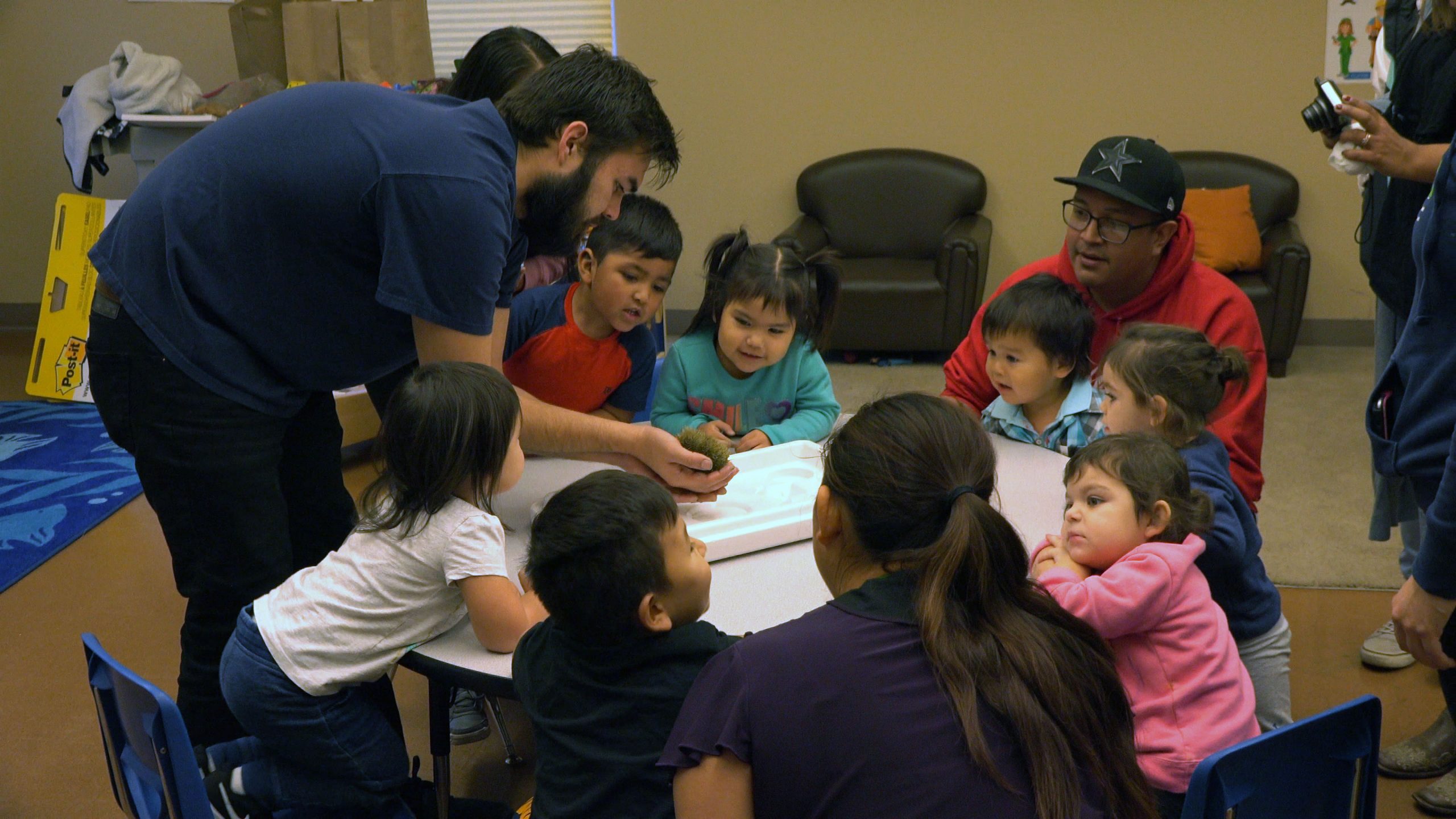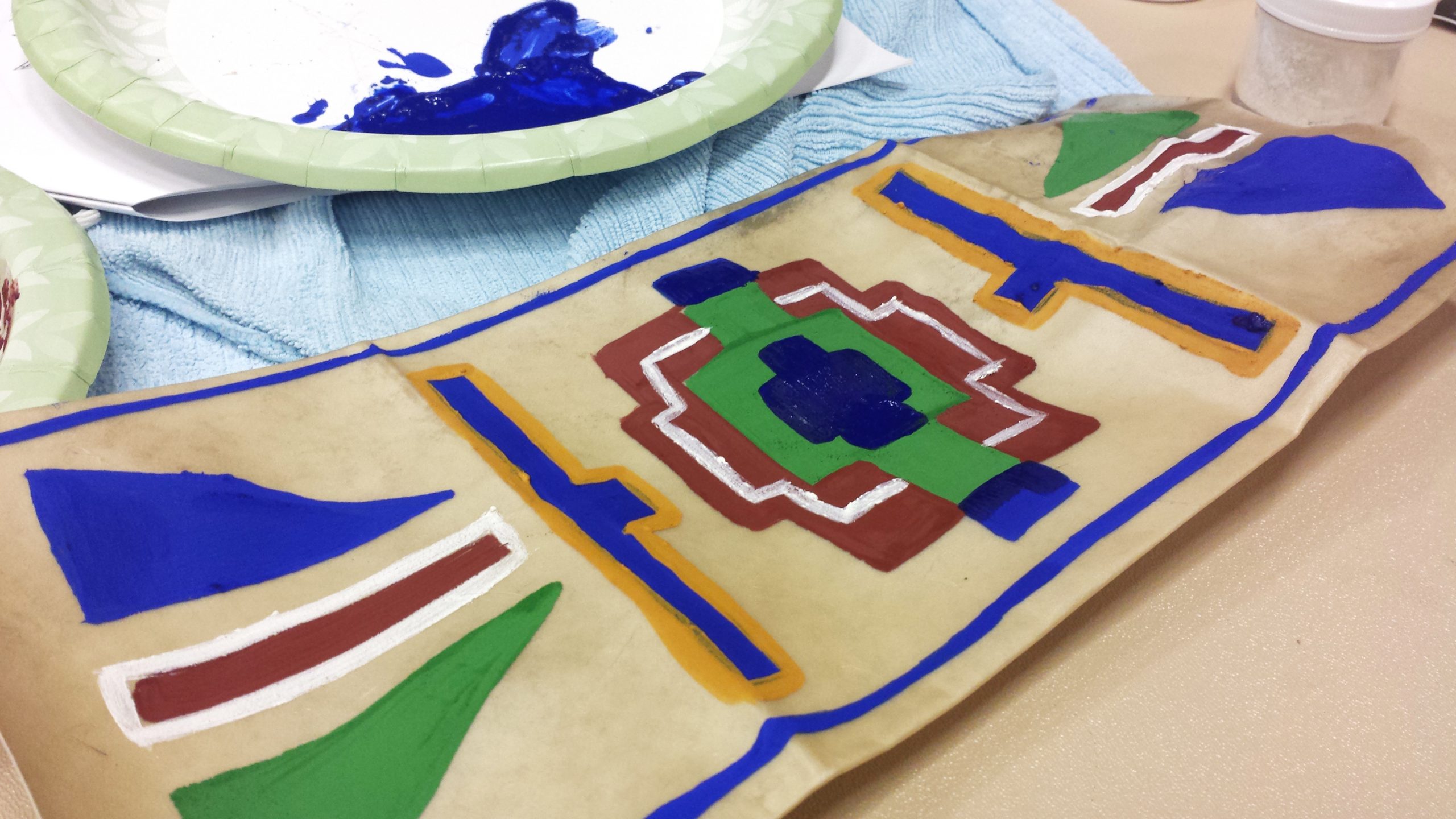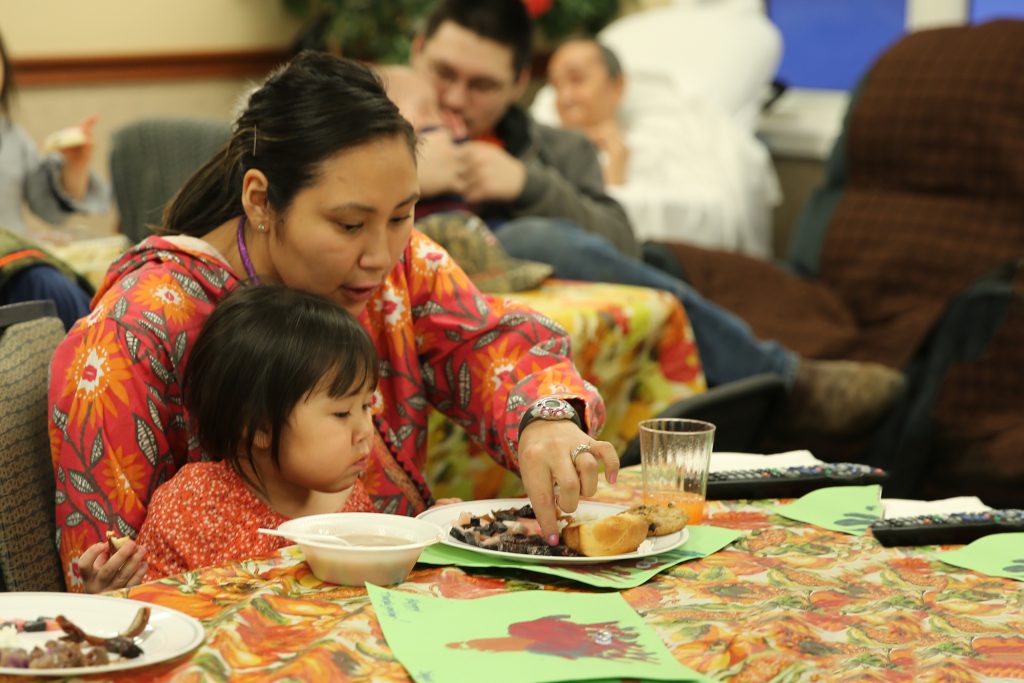High School Equivalency Visibility Project
2024
About The Project
The American Indian College Fund engaged three TCU high school equivalency (HSE) partners for the HSE Visibility Project, featuring the stories of HSE students and graduates in a social media campaign throughout winter and spring of 2024. Native HSE students have many experiences and stories of what initially led them to drop out of school – family responsibilities, work, health issues, escaping negative learning environments, substance abuse, undiagnosed learning disabilities, and so on. Yet, even after they’ve made the choice to resume their studies, they are still sometimes followed by the “dropout” stigma. HSE Programs are likewise marked with a reputation of inferiority – they are often underfunded, understaffed, unacknowledged, and housed off the main campus, in old buildings, or in back rooms. The HSE Visibility Project aimed to show HSE students as they are – brilliant, resilient, determined, and successful, as well as diverse in age, experience, and goals. The project also sought to elevate HSE as a significant pathway to college and an indispensable resource for tribal communities. You can view the social media campaign on our Native Pathways and American Indian College Fund social media platforms. TCUs also shared content to their respective social media platforms and on their campuses.
View the Posts
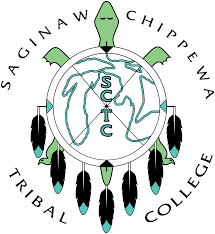
Saginaw Chippewa Tribal College
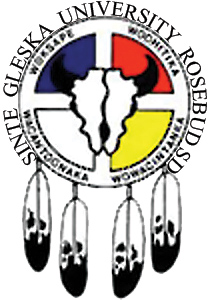
Sinte Gleska University
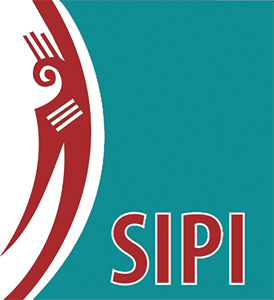
Southwestern Indian Polytechnic Institute
Related Blogs
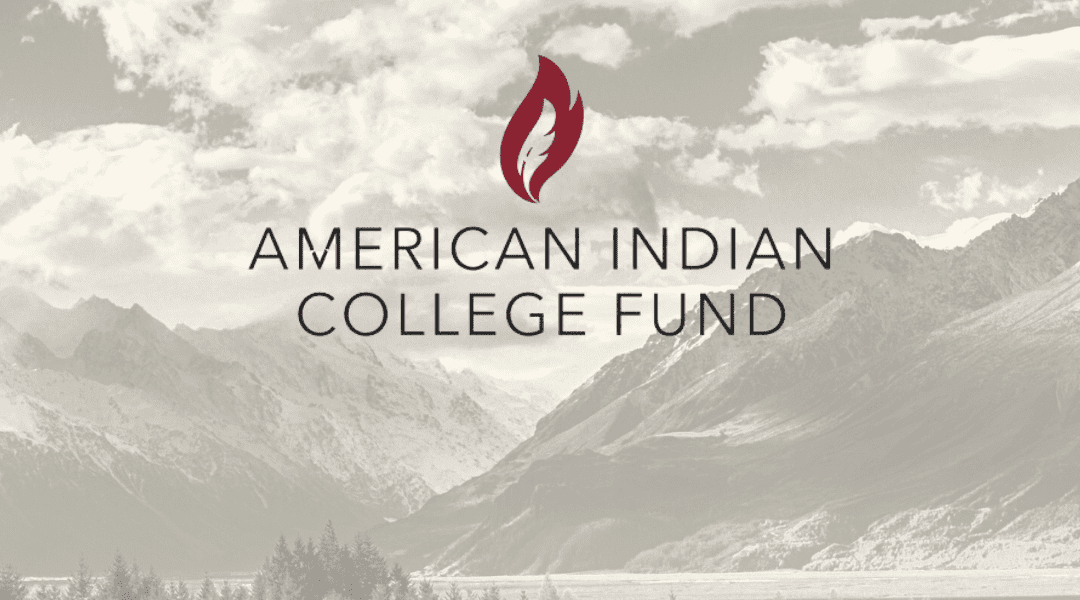
SGU Staff Spotlight: Sherman “Jim” Marshall, II
Sherman “Jim” Marshall has led Sinte Gleska University’s adult basic education and high school equivalency work for nearly 15 years. His quiet leadership has left a lasting impact on staff and students.

Brandon Earns GED through SCTC’s HSE Program
In this HSE student highlight, we see how encouragement can transform a student’s confidence, academic success, and plans for his future.
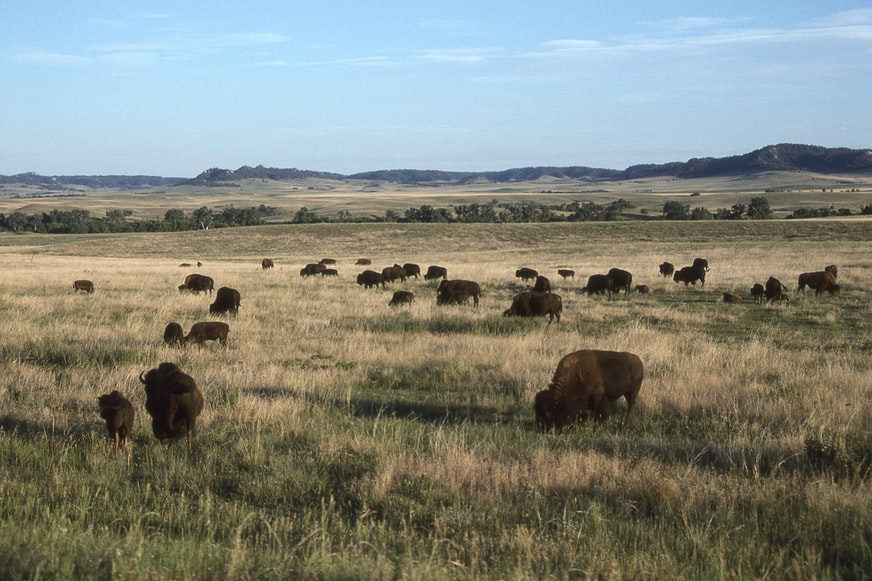
Oglala Lakota College GED Staff Highlight: Both Ends of the Spectrum of Service
For half of a century, Oglala Lakota College GED tutors have dedicated their hearts and time, helping students pick up their educations where they left off. For some tutors, supporting GED students has been their life’s work. For others, it is a newfound calling.
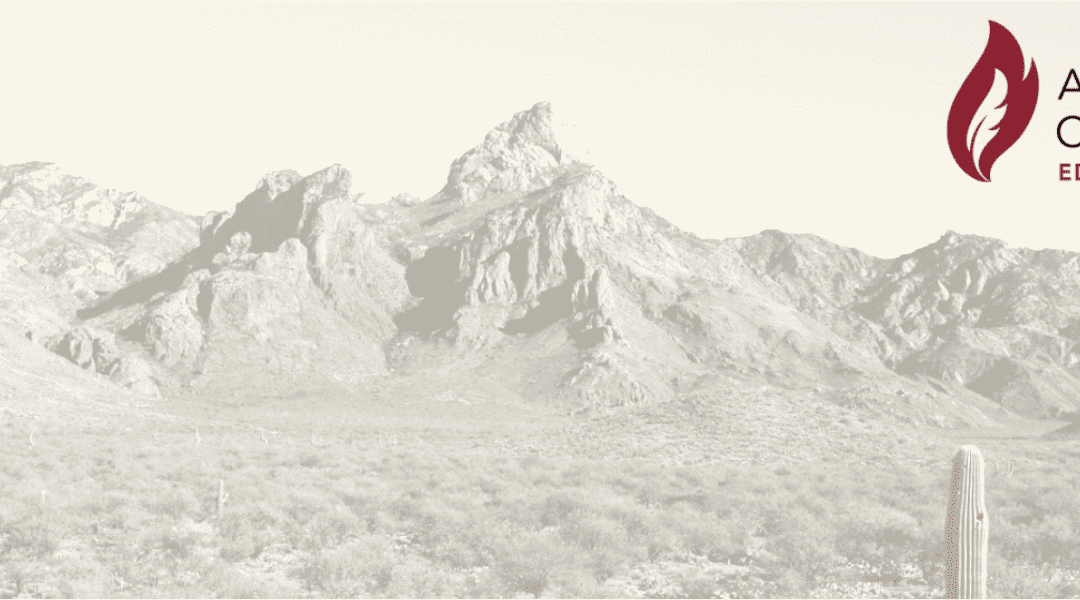
Tohono O’odham Community College Pre-College GED program
The Tohono O’odham Community College’s Pre-College GED Program has spent the past year and a half creating an efficient GED program suited for the realities their students face every day.

